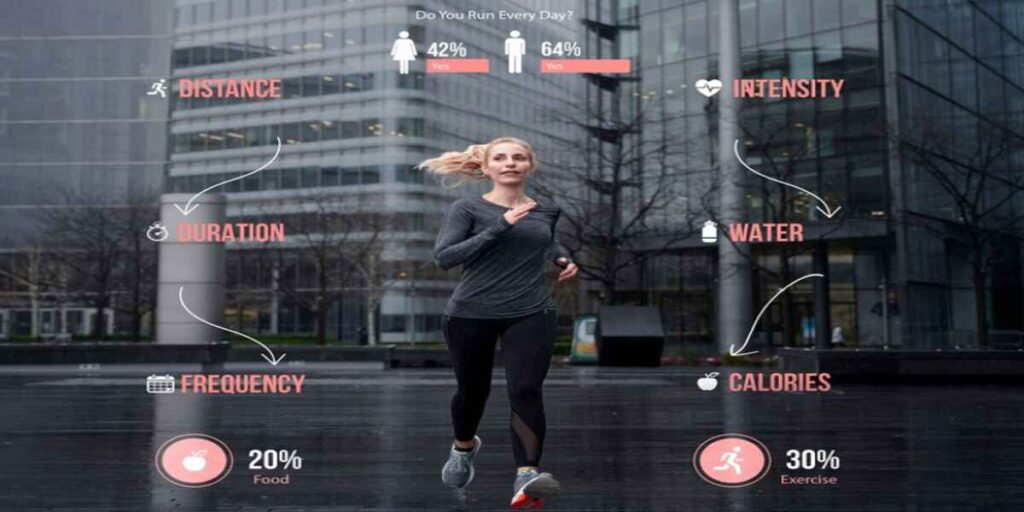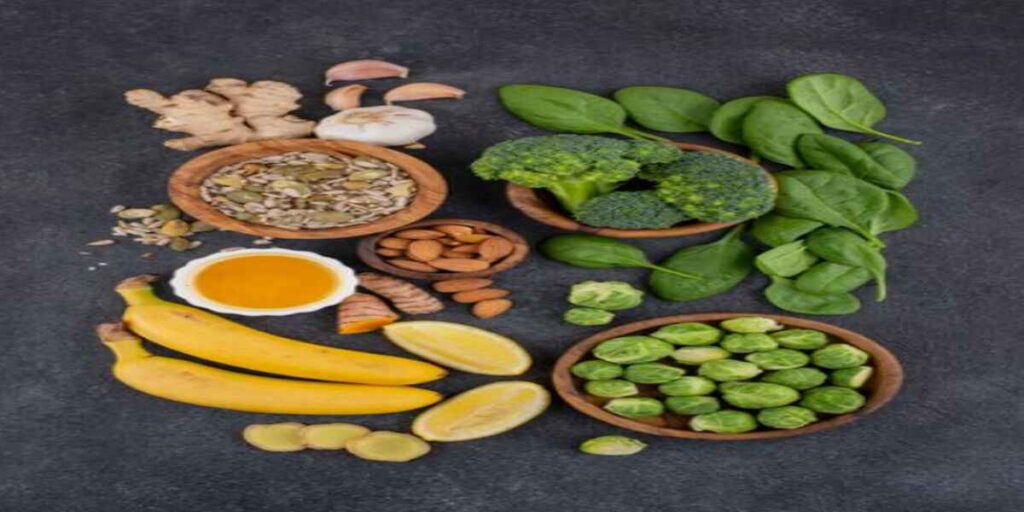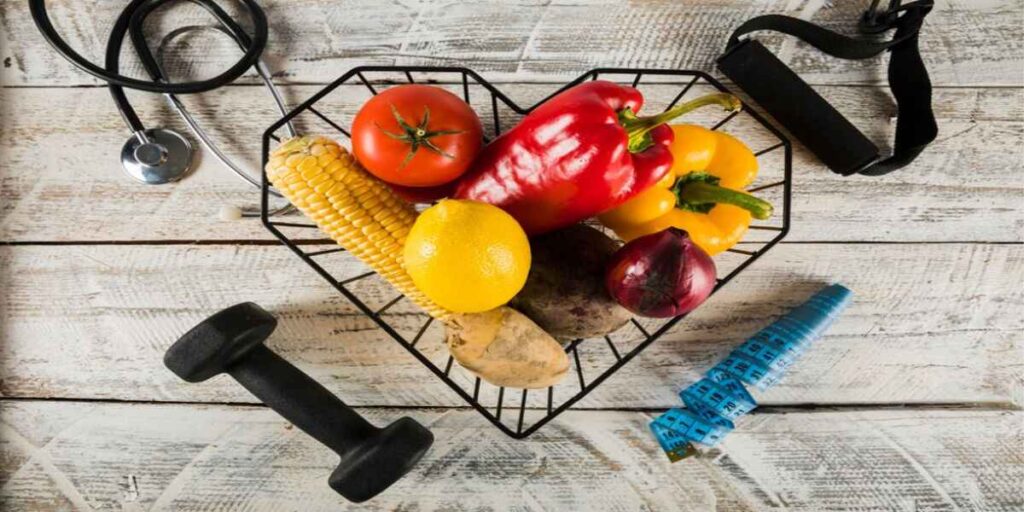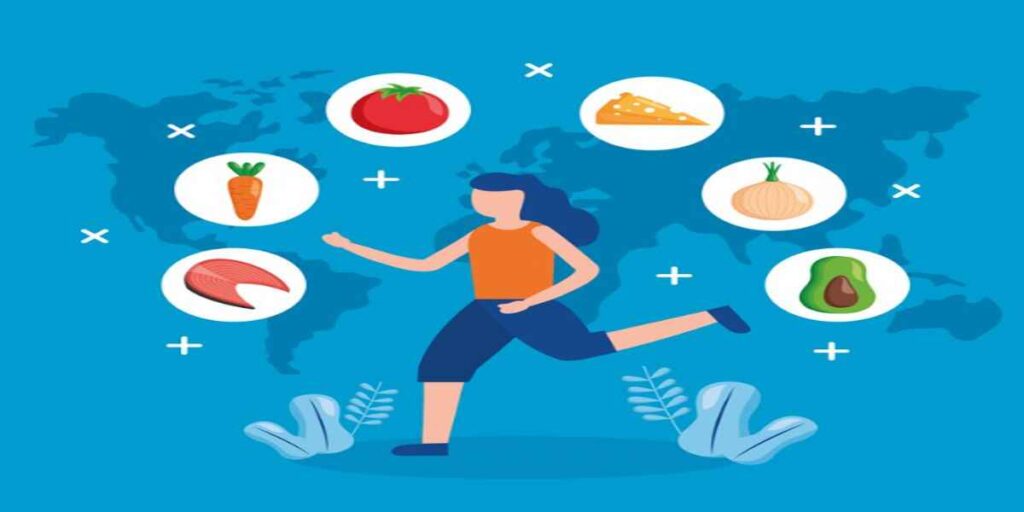The relationship between diet and exercise is the cornerstone of general well-being when it comes to health and fitness. Our goals to achieve and maintain a healthy lifestyle are directly impacted by the complex interaction that exists between the food we eat and how our bodies function
Holistic Approach:
Taking a comprehensive approach that includes both regular exercise and dietary decisions is necessary to reach health and fitness goals. It’s not just about tracking calories or working out; it’s about realizing how much nutrition affects our body’s ability to endure, recover, and thrive.
Fueling the body:
Our bodies need well-balanced, nutrient-rich food to function at their best, just as a car needs the correct kind of fuel to run smoothly. Our physical activities are propelled by our nutrition, which helps us push limits, build endurance, and recover quickly.
Long-Term Wellness:
It’s important to comprehend the long-term effects of nutrition in addition to short-term fitness goals. The foods we choose to eat now have a significant impact on how resilient and well-rounded we become as individuals. Consciously choosing what to eat creates the foundation for long-term health and energy.
Significance of Proper Nutrition in Achieving Health and Fitness Goals

- Enhancement of Performance:
When it comes to physical activity, optimal nutrition unlocks the body’s full potential. Improved endurance, strength, and agility can be attained by aerobic exercise, strength training, or flexibility exercises when the correct nutrients are consumed.
Any fitness program must include post-exercise recuperation. Eating a healthy diet helps hasten the healing process by restoring energy reserves, mending muscular damage, and promoting general physiological adjustment. This guarantees that the body endures the least amount of wear and tear and is prepared for future challenges.
- Disease Prevention:
Eating a balanced diet is important for preventing chronic diseases as well as for promoting physical fitness. Foods high in nutrients strengthen the immune system, control metabolism, and reduce the risk factors for diseases including obesity, diabetes, and cardiovascular disease.
In essence, this section illuminates the inseparable link between nutrition and physical fitness, laying the groundwork for a comprehensive exploration of how dietary choices impact our journey toward health and fitness. Understanding this connection is pivotal for anyone committed to achieving lasting well-being through a balanced and informed lifestyle.
Basics of Nutrition for Exercise

Choosing the Right Foods for Exercise
The decisions we make at the outset establish the course for our journey towards health and fitness. Making nutrient-dense foods a priority creates the conditions for long-lasting energy, increased endurance, and better general performance.
Essential Carbohydrates for Sustained Energy:
- The main energy source for physical activity is carbohydrates. Choosing complex carbs, like those found in whole grains and starchy vegetables, guarantees a consistent energy release, enabling longer, more effective exercises.
- Including Protein in Snacks and Meals: Protein is necessary for the development and repair of muscles. Including sources of lean protein in meals and snacks promotes muscle growth, aids in recuperation, and increases the overall efficacy of a workout regimen.
- Increasing Fruit and Vegetable Consumption: Fruits and vegetables are a great source of antioxidants, vitamins, and minerals that are essential for good health. Their incorporation into the diet boosts immunity, facilitates recuperation, and promotes general well-being when engaging in physical activity.
- The Ideal Amount of Healthy Fats to Consume:
Good fats, such as those in nuts and avocados, nuts, and olive oil, play a crucial role in providing sustained energy. These fats also contribute to joint health, aid in nutrient absorption, and support overall bodily functions.

Pre-Exercise Fueling Strategies
- Important Components of Efficient Fueling:
- Two important aspects of pre-exercise nutrition are timing and composition. A balanced meal or snack with carbohydrates, protein, and a small quantity of healthy fats should be consumed one to two hours before going out to guarantee the body has the fuel it needs to function at its best.
- Notable Foods:
- Nuts, Nut Butter, Oranges, Berries, Grapes, and Bananas
- Some meals are especially good as pre-workout snacks. Berries and grapes offer antioxidants; nuts and nut butter provide a combination of protein and healthy fats that support sustained energy levels during physical exercise; and bananas give a rapid energy boost.
- A Look at Caloric Intake:
- To meet the energy demands of exercise, one must consume an adequate amount of calories. Maintaining a healthy balance between calorie intake and expenditure is essential to prevent tiredness, increase endurance, and.
Maintaining a Balanced Approach

Steer clear of severe calorie limitations:
Although many fitness objectives include calorie restriction, severe limitations can have a detrimental effect on metabolism, energy levels, and general health. The body gets the resources it needs to perform at its best when calorie intake is sustainable and balanced.
Stressing the Value of Balance:
Reaching your fitness and health objectives requires finding a balance in your lifestyle and diet. For long-term growth and optimal health, it is imperative to maintain an equilibrium between energy expenditure and intake of macro- and micronutrients, as well as overall energy.
Nutritional Components and Athletic Performance
- It is crucial to have a fundamental understanding of important nutrients if one is to pursue health and fitness. These nutrients are essential for maintaining athletic performance since they make sure the body works at its best during a variety of physical activities.
- For optimal athletic performance, three macronutrients are essential: proteins, carbs, and lipids. Carbs supply the energy needed for exercise, proteins help build and repair muscles, and healthy fats are important for general health and long-term endurance.
- Micronutrients: Also referred to as essential vitamins and minerals, micronutrients are necessary for a number of physiological processes. From promoting immunological health to enabling energy,.
- metabolism, micronutrients are integral components that contribute to overall well-being and performance.
Concluding Evidence for the Connection Between Exercise and Nutrition
Scientific Support:
Several studies demonstrate the direct relationship between improved athletic performance and a healthy diet. Research has shown time and time again how certain nutrients affect things like strength, endurance, and recuperation.
Case Studies:
Case studies and real-world examples highlight how optimal nutrition can be applied practically in a variety of athletic contexts. These examples offer concrete proof of how individualized dietary plans can result in noticeable performance gains.
Importance of Macronutrient Balancing Act Timing and Balance:
Reaching the proper macronutrient balance is crucial for fulfilling the energy requirements of physical activity. A comprehensive and sustainable approach to nutrition that supports both short-term performance and long-term goals is ensured by maintaining a balance between carbohydrates, proteins, and fats.
Time is everything.
When it comes to maximizing athletic performance, the timing of nutrient intake is critical. Eating the correct foods at the right times, such as before and after exercise, affects how much energy you have, how quickly you recover, and how effective your training is overall.
The Best Foods for Performing at Your Best

- Dark leafy greens such as kale, spinach, and Swiss chard are packed with vitamins, minerals, and antioxidants. These nutrient-dense foods provide essential nutrients like iron, calcium, and vitamins A and C, contributing to overall health and supporting optimal athletic performance.
- Anti-Inflammatory Properties: Dark leafy greens’ anti-inflammatory qualities help to minimize the risk of injuries, promote quicker recovery, and lessen inflammation brought on by exercise. Including these greens in the diet guarantees a strong basis for continued exercise.
- Antioxidant Defense: Antioxidants abound in berries, especially strawberries, raspberries, and blueberries. These substances fight the oxidative stress brought on by exercise, which helps shield cells from harm, lessen discomfort in the muscles, and speed up recovery following strenuous training.
Enhanced Cognitive Function: Antioxidants in berries have been shown to have a positive impact on cognition, which helps athletes focus and think more clearly when exercising. This mental toughness is essential to sustaining steady performance across various training modalities.
Eggs Provide Vital Nutrients and Protein

- Complete Protein Source: Packed full of superior quality amino acids required for muscle growth and repair, eggs are a great source of protein. This makes them a fantastic dietary option for anyone doing any kind of physical activity, including strength training and endurance workouts.
- Minerals and Vitamins: In addition, eggs contain important minerals and vitamins like selenium, vitamin B12, and vitamin D. Athlete performance is directly impacted by these nutrients since they are essential for energy metabolism, bone health, and general physiological function.
- Long-Term Energy Release: The complex carbs included in sweet potatoes give off energy gradually when you exercise. This steady energy helps avoid the abrupt crashes linked to simple carbs, preserve endurance, and control blood sugar levels.
- Nutrient-rich: Sweet potatoes are high in potassium, dietary fiber, vitamins A and C, and are also a good source of carbohydrates. These nutrients help a person’s fitness journey by promoting general health, immunological function, and digestive well-being.
- Curcumin, a substance known for its strong anti-inflammatory and antioxidant qualities, is found in turmeric. Turmeric can help with inflammation reduction, joint pain relief, and accelerated recovery from physically demanding activities.
- Joint Well-Being and Recuperation:
- Turmeric’s anti-inflammatory properties improve joint health and lower the chance of injuries from activity. This makes it a beneficial supplement to the diet, especially for those who exercise with high impact or repetitive action.
conclusion
Everyone looking to achieve their best athletic performance has a tactical edge by including these ideal meals in their diet. These food selections, which range from nutrient-dense greens to antioxidant-rich berries, protein-rich eggs, energy-sustaining sweet potatoes, and inflammation-fighting turmeric, can have a big impact on ultimate health and fitness results.


